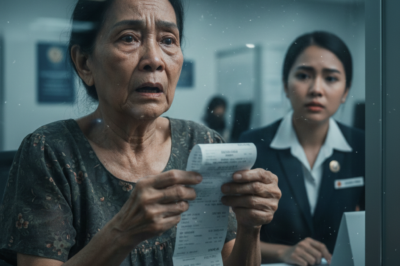Acclaimed Filipino Director Mike de Leon Passes Away: A Legend of Philippine Cinema Rest in Peace
The curtains have fallen on one of Philippine cinema’s greatest visionaries. Mike de Leon, the acclaimed filmmaker whose body of work defined an era and whose uncompromising vision elevated the language of film, has passed away at the age of 78. The news of his death shook the entertainment industry and left fans, fellow directors, and generations of audiences mourning the loss of a cultural titan.
More than just a director, de Leon was a storyteller who carved truth into every frame. His films reflected not only the struggles of individuals but also the deep political and social realities of the nation. To speak of Philippine cinema without mentioning his name is impossible. To watch his work is to see history, psychology, and artistry woven together into haunting images that endure long after the credits roll.
A Legacy Rooted in Heritage
Born Miguel Pamintuan de Leon on May 24, 1947, Mike was destined for cinema. His grandmother, Narcisa “Doña Sisang” de Leon, was the legendary founder of LVN Pictures, one of the Philippines’ most influential studios during its golden age. From childhood, he was surrounded by the glow of projectors, the hum of cameras, and the weight of storytelling as both business and art.
After studying Humanities at Ateneo de Manila University and later pursuing further education in Germany, de Leon returned home armed not only with technical skill but also with a worldview that would define his work: that film must be honest, bold, and unafraid to confront society’s deepest wounds.
He began as a cinematographer, notably working on Lino Brocka’s masterpiece Maynila sa mga Kuko ng Liwanag (1975). But it was only the beginning. By 1976, with the release of Itim (The Rites of May), de Leon had stepped into his own identity as a director — one who would challenge, disturb, and inspire audiences for decades.
Films That Defined Generations
Mike de Leon’s filmography is not vast, but it is intensely significant. Each work carries the mark of a master.
Itim (1976) – His debut feature, a chilling blend of gothic horror and psychological drama, introduced his fascination with the inner lives of characters and their haunted pasts.
Kakabakaba Ka Ba? (1980) – A satirical musical comedy that blended absurdity with biting social critique, proving his versatility as a filmmaker.
Kisapmata (1981) – Perhaps his most terrifying and unforgettable film. Inspired by a true crime, it depicted authoritarian control inside a family, led by a domineering father. More than a domestic story, it was a metaphor for dictatorship, and it won every award at the 1981 Metro Manila Film Festival.
Batch ’81 (1982) – A brutal, allegorical take on fraternity hazing that mirrored the violence and conformity under martial law. Its shocking imagery and relentless honesty cemented de Leon as a fearless filmmaker.
Sister Stella L. (1984) – Starring Vilma Santos, it told the story of a nun awakening to the injustices faced by workers. The film became a rallying cry for social justice and remains a landmark of political cinema in the Philippines.
Bayaning 3rd World (2000) – After years of silence, de Leon returned with this unconventional mockumentary questioning the heroism of José Rizal. It was witty, critical, and uniquely Filipino in its courage to question national myths.
Citizen Jake (2018) – His final feature, a deeply personal political drama, criticized the persistence of corruption and privilege in modern Philippine society. It was a reminder that even in his seventies, de Leon’s fire to expose truth had not dimmed.
Through these works, de Leon created not mere films but cultural touchstones — pieces of art that forced audiences to question authority, morality, and even themselves.
An Uncompromising Vision
De Leon was known for his perfectionism and his refusal to compromise. He rarely granted interviews, kept a low profile, and allowed his films to speak louder than his public persona. To many, he was elusive; to others, intimidating. Yet to all who worked with him, he was a genius — a man who demanded authenticity in every scene and who believed cinema was not entertainment alone but a moral responsibility.
He was also a fierce critic of the industry itself. In a time when mainstream films often leaned on formula and profit, de Leon insisted on artistry. He saw cinema as a mirror — sometimes cracked, sometimes harsh — but always reflecting truths society preferred to ignore.
Tributes Pour In
Following news of his passing, tributes flooded social media and news outlets. The Film Development Council of the Philippines (FDCP) called him a “visionary who redefined storytelling for generations.” Fellow filmmakers praised him as a pioneer, while actors remembered his intensity on set and his deep commitment to craft.
Fans shared personal stories of first encountering his films in classrooms, retrospectives, or late-night television, describing how his works left them shaken but awakened. Many pointed out how Kisapmata and Batch ’81 remain disturbingly relevant even today, decades after their release.
Even international critics, who had featured his films at festivals in Cannes, Venice, and Berlin, recognized his contributions to world cinema. For them, Mike de Leon was not just a Filipino filmmaker — he was a global artist.
The Legacy That Lives On
Though Mike de Leon has passed, his work ensures his presence will never fade. His films will continue to be studied in universities, screened in retrospectives, and discovered by new generations of cinephiles who will find in them both beauty and brutality.
He leaves behind not only a canon of masterpieces but also a challenge — for future filmmakers to dare, to question, and to resist mediocrity. He showed that Philippine cinema could be intellectually rigorous, emotionally devastating, and artistically world-class.
Final Farewell
The death of Mike de Leon marks the end of an era, but his spirit remains etched in Philippine culture. He was not a director who sought applause; he was a director who sought truth. And in doing so, he gave the country films that will outlive politics, trends, and even time itself.
As the Philippines bids farewell, one truth is clear: a legend may rest, but his films will forever speak.
Mike de Leon, 1947–2025. Rest in peace, maestro.
News
Inampon ng guro na hindi kailanman ikinasal ang kanyang inabandunang estudyante na naputol ang binti. Pagkalipas ng dalawampung taon, naantig ng bata ang milyun-milyong tao…
Si Propesor Don Ernesto Ramírez ay nagturo ng panitikan sa isang pampublikong hayskul sa labas ng Mexico City, malapit sa Iztapalapa. Kilala siya…
Ako ay 65 taong gulang. Nagdiborsyo ako limang taon na ang nakararaan. Iniwan sa akin ng ex husband ko ang bank card na may 3,000 pesos. Hindi ko ito hinawakan. Pagkalipas ng limang taon, nang i-withdraw ko ang pera… Ako ay paralisado.
Ako ay 65 taong gulang. At pagkatapos ng 37 taon ng pagsasama, iniwan ako ng lalaking halos buong buhay ko…
Siyam na taon matapos silang mawala sa kabundukan… Tanging ang aso lamang ang bumabalik
Isang Golden Retriever ang Bumalik Pagkatapos ng 9 na Taon – at Humantong sa Kanila Pabalik sa Katotohanan Ang Golden…
Kinaladkad ako ng aking asawa sa gitna ng bakuran, pinahiya sa harap ng dalawang pamilya at saka inahit ang ulo at pinahiran ng apog para lamang “mapasaya” ang kanyang kabit na buntis ng kambal na dalawang lalaki. Ngunit sa gabing iyon, tahimik kong pinirmahan ang isang papel—hindi iyon divorce paper, kundi…
Noong araw na iyon, kinaladkad ako ng aking asawa palabas sa bakuran, sa harap ng kanyang mga kamag-anak, ng aking…
Ibinuhos ng asawa ang bagoong sa ulo ng kanyang asawa para lang pasayahin ang buntis niyang kabit na may dinadalang anak na lalaki. Ngunit hindi niya inakalang makalipas lamang ang sampung minuto, ang paghihiganti ng buong pamilya ng babae ay magpapatumba sa “third party” nang hindi man lang ito makakilos…
Ang lalaking minsan kong tinawag na asawa—sa harap ko at sa babaeng karelasyon niya—ay diretsong ibinuhos ang isang mangkok ng…
Nang malaman ng aking biyenan na kumikita ako ng ₱100,000 kada buwan, mariin niyang iginiit na dalhin ang tatlo niyang kapatid na lalaki mula sa bukid upang tumira kasama namin, at inutusan pa akong pagsilbihan sila araw-araw. Tahimik akong nagplano sa aking isipan, at makalipas lamang ang isang araw, may isang bagay na lubos na hindi inaasahan ang biglang nangyari…
Nang malaman ng biyenan kong babae na kumikita ako ng ₱100,000 kada buwan, bigla siyang nagbago.Hindi na siya mapanlait, hindi…
End of content
No more pages to load












